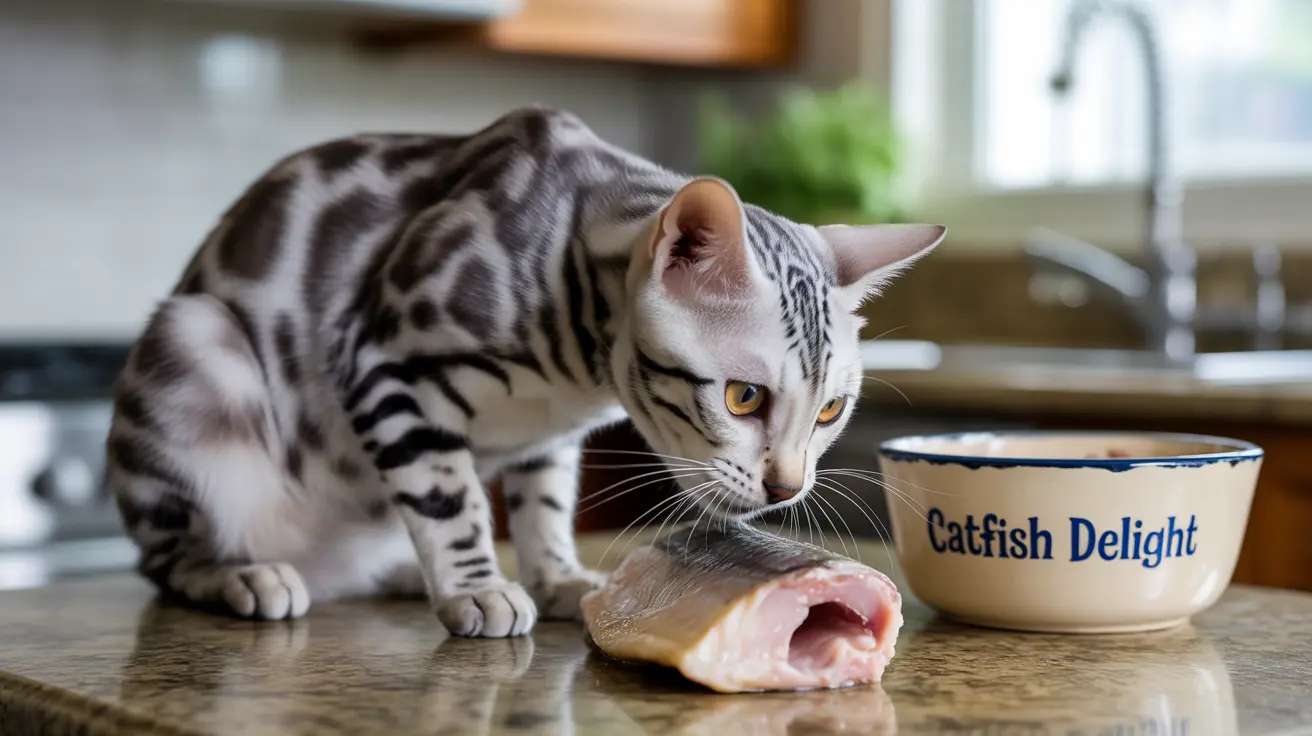If you're wondering whether cats can eat catfish, the answer is yes - but with important caveats. As a lean protein source, properly prepared catfish can be a safe occasional treat for your feline friend. However, understanding the right way to serve it and potential risks is crucial for your cat's health and safety.
In this comprehensive guide, we'll explore everything you need to know about feeding catfish to your cat, including proper preparation methods, health benefits, potential risks, and best practices for serving.
The Nutritional Benefits of Catfish for Cats
Catfish offers several nutritional advantages when properly prepared:
- High-quality lean protein essential for muscle maintenance
- Omega-3 fatty acids for coat and skin health
- Important B vitamins, particularly B12
- Minerals including selenium and phosphorus
While these nutrients are beneficial, it's important to note that catfish should only complement, not replace, your cat's regular balanced diet.
Safe Preparation Methods
The way you prepare catfish for your cat is crucial for their safety:
- Always serve it fully cooked
- Remove all bones thoroughly
- Avoid seasonings, salt, and oils
- Skip breading or batter
- Boil, bake, or grill without added fats
Never serve raw catfish, as it contains harmful thiaminase enzymes and potential parasites that could make your cat sick.
Potential Risks and Concerns
While catfish can be safe for cats, there are several risks to consider:
- Raw or undercooked fish can harbor dangerous bacteria and parasites
- Some cats may have fish allergies
- Regular fish consumption might lead to thiamine deficiency
- Environmental toxins can accumulate in fish
- Bones can pose a choking hazard
Serving Guidelines and Portions
Follow these guidelines when offering catfish to your cat:
- Limit portions to small, bite-sized pieces
- Offer no more than once or twice per week
- Start with tiny amounts to test for allergies
- Always serve alongside regular cat food
- Monitor for any adverse reactions
Signs Your Cat Shouldn't Eat Catfish
Watch for these indicators that catfish might not be suitable for your cat:
- Vomiting or diarrhea after consumption
- Excessive scratching or skin irritation
- Loss of appetite
- Lethargy or unusual behavior
- Previous allergic reactions to fish
Frequently Asked Questions
Is cooked catfish safe for my cat to eat, and how should it be prepared?
Yes, cooked catfish is safe for cats when properly prepared. Always serve it fully cooked, deboned, and without any seasonings, oils, or additives. Boiling, baking, or grilling are the safest preparation methods.
Why should I avoid feeding raw or undercooked catfish to my cat?
Raw or undercooked catfish contains thiaminase enzymes that can destroy essential vitamin B1 (thiamine) in your cat's body. It may also harbor harmful bacteria and parasites that could cause serious illness.
How often can I give my cat catfish without risking nutritional imbalances?
Catfish should be offered only as an occasional treat, no more than once or twice per week. Serving it more frequently could lead to nutritional imbalances and potential health issues.
What are the risks of feeding catfish as a main protein source for cats?
Using catfish as a main protein source can lead to nutritional deficiencies, as it lacks essential nutrients cats need, including adequate taurine levels and the proper calcium-to-phosphorus ratio required for a complete diet.
Can catfish cause allergies or health problems in cats, and how can I tell?
Yes, some cats can be allergic to fish, including catfish. Watch for signs such as vomiting, diarrhea, excessive scratching, skin irritation, or changes in behavior. If you notice any of these symptoms, discontinue feeding catfish and consult your veterinarian.
Conclusion
While cats can safely eat catfish when properly prepared, it should only be offered as an occasional treat within a balanced diet. Always prioritize food safety, watch for signs of allergies or sensitivities, and consult with your veterinarian if you have specific concerns about including catfish in your cat's diet.






